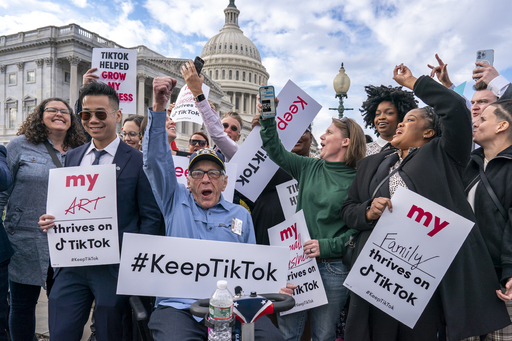If you ask what SNS (Social Networking Service) is leading the recent trends, TikTok will readily come out as the winner. As short form content has become a trend, TikTok has become a trend-leading SNS. However, there is also constant gossip about TikTok. ST once investigated what kind of gossip there would be about TikTok, and what effect it would have. Let’s take a look at the reason why many countries and organizations are advocating the TikTok ban. ............... Ed
TikTok, an app familiar to most people, may be banned in countries around the world, including yours. TikTok is a short-form video content hosting service, and allows users to upload and share content ranging from 3 seconds to 10 minutes long. It is also one of the most popular social media and entertainment platforms for younger people. However, it is embroidered in a wave of negative attention, leading many countries to consider banning it.
One of such countries is the United States. Currently, several U.S. (United States) senators have unveiled legislation that would allow the U.S. government new powers to punish tech companies with foreign ties, including a complete ban on their products, called the RESTRICT Act (Restricting the Emergence of Security Threats that Risk Information and Communications Technology Act). While not mentioning it directly, this law aims to penalize TikTok, as policymakers around the country have expressed concern over the threat of Chinese espionage and theft of personal information of Americans amidst the Biden administration’s anti-Chinese foreign policy.
And such fears are not unfounded; TikTok does collect a significant amount of information from its users. From ST’s testing, the app collects personal information such as date of birth, phone number, e-mail address, and profile photo, as well as information from uploaded content, comments left on videos, and DMs (Direct Messages), to form a profile. Furthermore, the app collects device-identifying information such as Device ID (Identification), information on battery degradation, IP (Internet Protocol) address, keystroke patterns of its users, service provider, and the user’s network configuration. TikTok also collects data from uploaded content that most may not expect; it is able to distinguish objects and people, as well as their surroundings from uploaded content, and even collect distinguishing audio information. Though such information collection may seem malignant at face value, such behavior is commonplace in many platforms; many of your favorite apps such as Facebook and Instagram collect a similar amount of information. To address such concerns, Shou Chew, the CEO (Chief Executive Officer) of TikTok, clarified in March that there have not been any attempts to access information collected by TikTok from the Chinese government, and that TikTok would not relent if requests were made. Moreover, the platform offered concessions such as storing U.S. data on data centers on American soil and working with the U.S. government to arrive at a compromise.
In late March, both the U.S. Senate and the House of Representatives introduced a law called ‘Prevention of National Threats Based on Internet Surveillance and Coercive Censorship by the Chinese Community Party and Algorithms.’ Is the U.S. the only country imposing legal sanctions on TikTok? India banned it completely in 2020 because of border issues with China. Japan, Canada, New Zealand, Britain, and Australia have decided not to use it for all devices registered with government organizations. The EU (European Union) said it would ban TikTok if it did not comply with content regulations, and France also imposed sanctions on TikTok. Legal sanctions on TikTok apps are spreading.

On the other hand, there are forces against the TikTok ban. When the law banning TikTok was proposed in the U.S. Congress, TikTok users rose in protest against the law. And here is their argument. Currently, there are over 150 million TikTok users in the United States, and they argue that prohibiting the use of the app violates their freedom of expression. The First Amendment of the United States stipulates “Congress shall make no law respecting an establishment of religion, or prohibiting the free exercise thereof; or abridging the freedom of speech, or of the press; or the right of the people peaceably to assemble, and to petition the Government for a redress of grievances.” As such, the U.S. has established a climate that values freedom of expression. And it points out that restricting users’ rights without justifiable evidence of security threats is a grave threat to freedom of expression. Because of opposing forces, the government’s influence on TikTok sanctions seems to be gradually weakening.
It remains to be seen what will happen when TikTok’s excessive collection of information and freedom of expression collide. Recently, Korea has not imposed sanctions on TikTok. However, opinions are divided on what to do because Korea is an ally of the U.S. It is time for Soongsilians to think about whether security comes first, or freedom of expression comes first.
Min Jeong-ung (News Editor)
redreboot@soongsil.ac.kr
Kwon Da-hee (ST Cub-Reporter)
kkkdiee@soongsil.ac.kr


